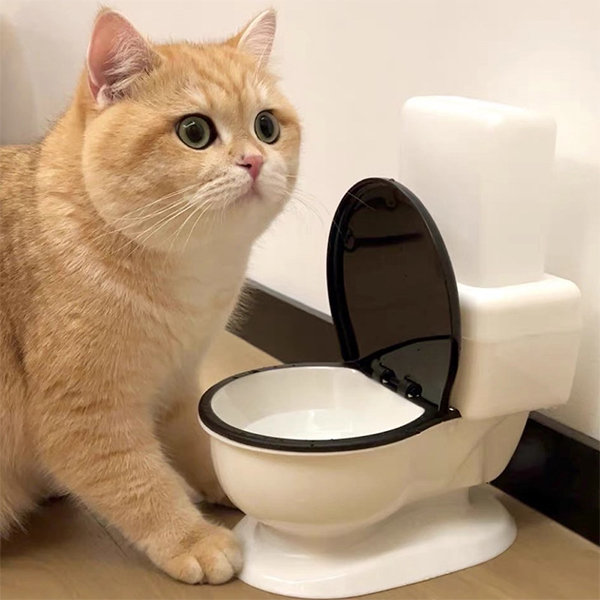Potential Risks of Flushing Cat Poop Down Your Toilet - Advice for Safer Disposal
Potential Risks of Flushing Cat Poop Down Your Toilet - Advice for Safer Disposal
Blog Article
We've encountered this great article pertaining to Can You Flush Cat Poo or Litter Down the Toilet? down the page on the net and think it made good sense to discuss it with you over here.

Intro
As pet cat proprietors, it's essential to be mindful of how we throw away our feline close friends' waste. While it may appear hassle-free to purge pet cat poop down the commode, this technique can have destructive effects for both the setting and human health and wellness.
Alternatives to Flushing
Luckily, there are much safer and much more responsible means to throw away feline poop. Consider the following options:
1. Scoop and Dispose in Trash
The most usual technique of dealing with pet cat poop is to scoop it right into a biodegradable bag and toss it in the garbage. Make certain to make use of a committed clutter inside story and take care of the waste promptly.
2. Usage Biodegradable Litter
Go with eco-friendly pet cat clutter made from products such as corn or wheat. These trashes are environmentally friendly and can be securely disposed of in the garbage.
3. Hide in the Yard
If you have a yard, consider hiding pet cat waste in an assigned area far from vegetable gardens and water resources. Be sure to dig deep adequate to avoid contamination of groundwater.
4. Install a Pet Waste Disposal System
Buy a family pet waste disposal system particularly designed for pet cat waste. These systems use enzymes to break down the waste, lowering odor and ecological impact.
Health and wellness Risks
Along with ecological worries, flushing feline waste can likewise present health risks to people. Feline feces may have Toxoplasma gondii, a bloodsucker that can cause toxoplasmosis-- a possibly severe ailment, particularly for expecting females and individuals with weakened body immune systems.
Environmental Impact
Flushing feline poop presents hazardous virus and bloodsuckers into the supply of water, posturing a substantial threat to aquatic communities. These pollutants can adversely affect aquatic life and concession water high quality.
Final thought
Accountable family pet ownership prolongs past supplying food and shelter-- it also entails appropriate waste management. By avoiding flushing cat poop down the commode and selecting alternative disposal approaches, we can lessen our environmental impact and protect human wellness.
Why You Should Never Flush Cat Poop Down the Toilet
A rose by any other name might smell as sweet, but not all poop is created equal. Toilets, and our sewage systems, are designed for human excrement, not animal waste. It might seem like it couldn’t hurt to toss cat feces into the loo, but it’s not a good idea to flush cat poop in the toilet.
First and foremost, assuming your cat uses a litter box, any waste is going to have litter on it. And even the smallest amount of litter can wreak havoc on plumbing.
Over time, small amounts build up, filling up your septic system. Most litter sold today is clumping; it is made from a type of clay that hardens when it gets wet. Ever tried to scrape old clumps from the bottom of a litter box? You know just how cement-hard it can get!
Now imagine just a small clump of that stuck in your pipes. A simple de-clogger like Drano isn’t going to cut it. And that means it’s going to cost you big time to fix it.
Parasitic Contamination
Believe it or not, your healthy kitty may be harboring a nasty parasite. Only cats excrete Toxoplasma in their feces. Yet it rarely causes serious health issues in the cats that are infected. Most people will be fine too if infected. Only pregnant women and people with compromised immune systems are at risk. (If you’ve ever heard how women who are expecting are excused from litter cleaning duty, Toxoplasma is why.)
But other animals may have a problem if infected with the parasite. And human water treatment systems aren’t designed to handle it. As a result, the systems don’t remove the parasite before discharging wastewater into local waterways. Fish, shellfish, and other marine life — otters in particular — are susceptible to toxoplasma. If exposed, most will end up with brain damage and many will die.
Depending on the species of fish, they may end up on someone’s fish hook and, ultimately on someone’s dinner plate. If that someone has a chronic illness, they’re at risk.
Skip the Toilet Training
We know there are folks out there who like to toilet train their cats. And we give them props, it takes a lot of work. But thanks to the toxoplasma, it’s not a good idea.

We were introduced to that article on Don’t flush cat feces down the toilet from a friend on a different website. Enjoyed our post? Please share it. Let others locate it. Many thanks for your time. Come back soon.
Call Today Report this page